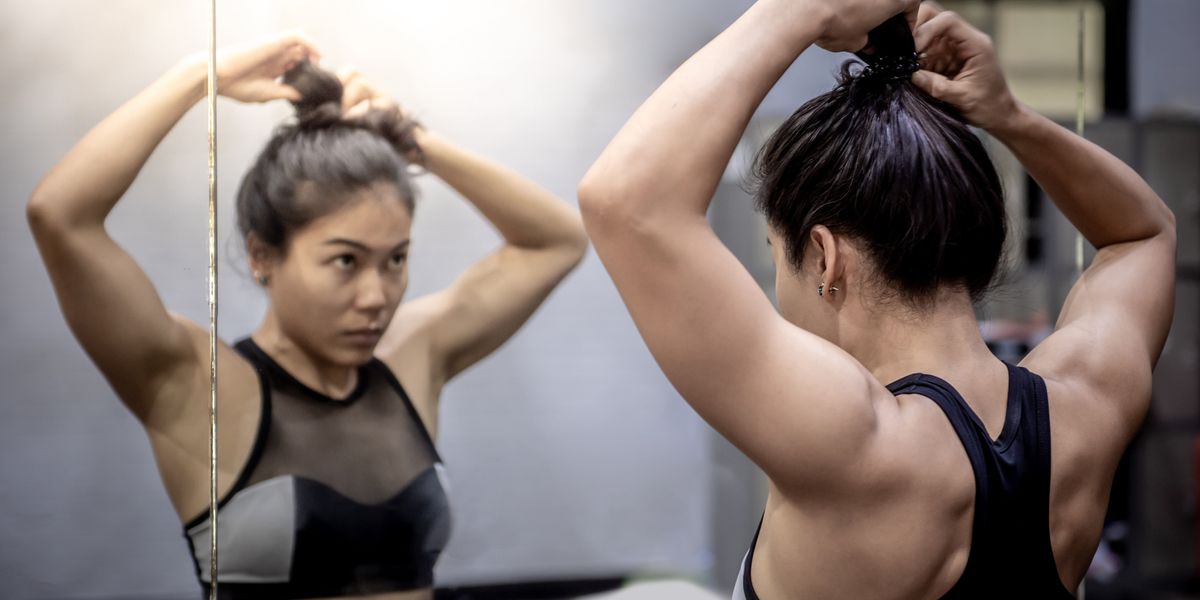Yes, It *Is* Possible to Build Body Confidence As a Dancer. Here Are 6 Tips
It’s true. Everyone’s looking at your body. In performance, it’s your instrument—which can do amazing and sometimes superhuman things. In an audition, it’s really the only information that hiring directors and choreographers have about you. Then there are the hours of class you spend scrutinizing yourself and what your body is capable of in the mirror.
This constant focus can make it challenging to develop body confidence, says Dr. Toby Diamond, consulting psychologist for the Pacific Northwest Ballet School. “It’s never easy, especially when you consider that we also value facility, like excellent turnout and perfect feet, beyond beauty, and both can be out of your control.”
So how can you become resilient enough to accept all the judgment that comes with a dance career?
1.Name What You Love About You
Find the things that you love as your best qualities, and even call them out verbally while you look at your reflection, Diamond says. It’s all about seeing what you do have, rather than focusing only on what you don’t, says Tina LeBlanc, ballet master at San Francisco Ballet and a veteran teacher who has been vocal about her own struggles to accept her body as a performer. “I knew I couldn’t change my proportions—I never had much of a waist or long legs—but I had speed and technique.”
2.Filter Feedback
Be practical about well-intentioned advice or commentary about your body, says LeBlanc. “Ask what you might be able to get from it and develop a strong enough backbone to let go of all the rest.” This doesn’t mean being unrealistic, she adds. “You can be confident about your strong points and still be clear with yourself about weak points that you’re working to bring up a level.”
3.Focus On How You Feel
Trying to conform to a certain look for an audition can backfire if it makes you feel insecure. “You see people book jobs by wearing the crop top and briefs, so you think you have to, but that’s not what makes me comfortable enough to dance my best,” says Traci Swartz, a performer in Los Angeles who also works at a talent agency. “Now, I wear what makes me feel amazing.”
Being confident is also enjoying the feeling of your body within the movement. “Let go and the audience will enjoy it too,” says LeBlanc. “I wish I would have danced my whole career like I did in my final performance, when I was no longer trying to be perfect.”
4.Study Body Types Like Yours
Getting body positive might mean finding a body double: Diamond suggests looking at company rosters and studying the bodies that look like yours. Identify movement qualities you admire in these dancers and try to bring those attributes to your own dancing.
“You might say, ‘She’s short like me, but that works for her—look how she makes up for it,’ ” says Diamond.
5.Be Grateful for What Your Body Can Do
When you’re zeroed in on one flaw, it’s easy to forget all the amazing things our bodies are capable of. Remind yourself what a feat it is to extend your leg past your ear or pull off a clean triple pirouette. Some dancers only learn this lesson after an injury or a leave of absence.
“I’ve seen many dancers come back after having children with more perspective and balance about their body image,” says Diamond.
6.Don’t Pin Your Image to One Job
Be wary of letting the outcome of an audition determine how you see yourself.
“You’re more than just a body, or a great extension,” says LeBlanc. “If you find a door shut in your face, it doesn’t mean it’s a dead end for your dancing. It could be a redirection that’s better for you in the long run.”
Remember that there are likely companies and choreographers that want what you do have. “So many jobs now are asking to see relatable people, not just the girl with the perfect body,” says Swartz. ” ‘Quirky’ is such a common word to read in casting notices.”
And don’t forget to draw strength from what’s going well for you outside the studio, says Diamond. “Look at your whole life, not just your body, and pursue that larger project of being a balanced human being.”




